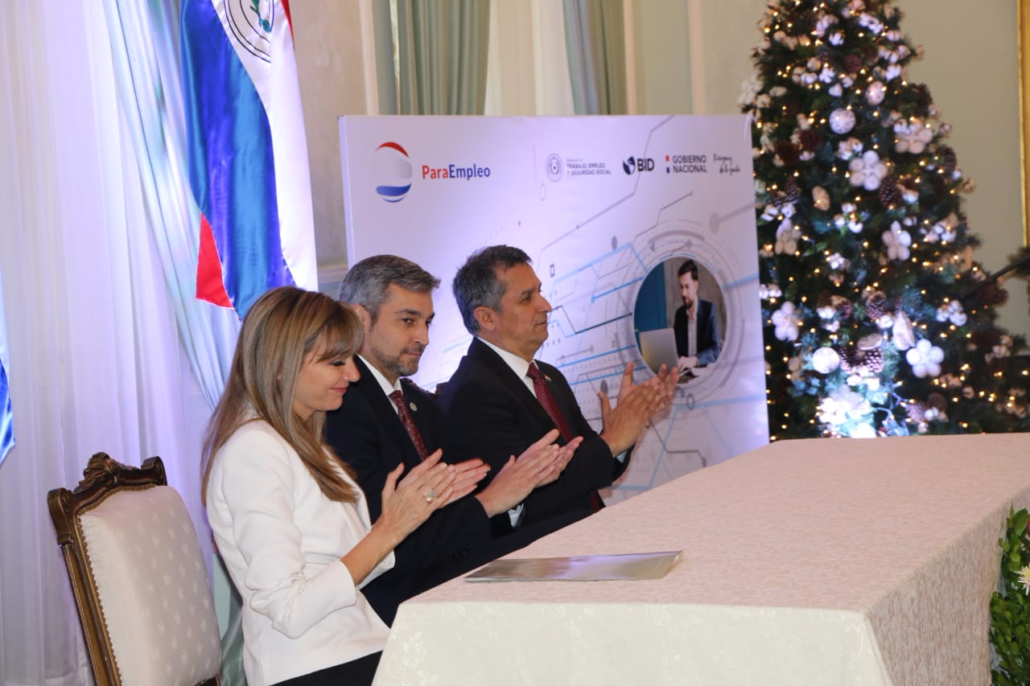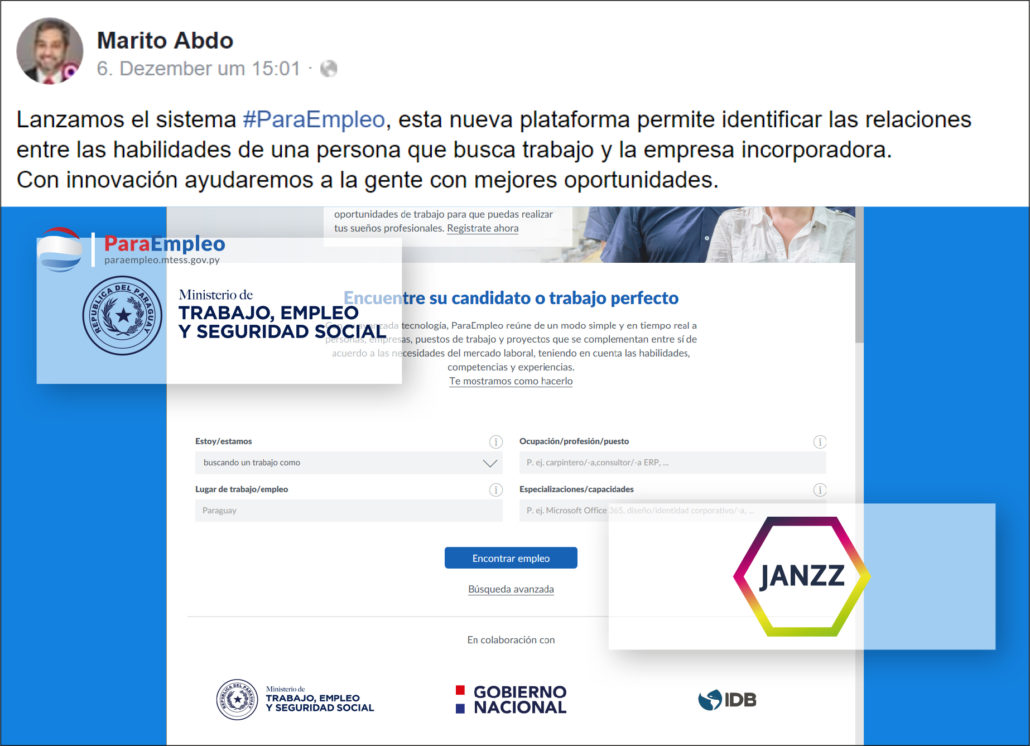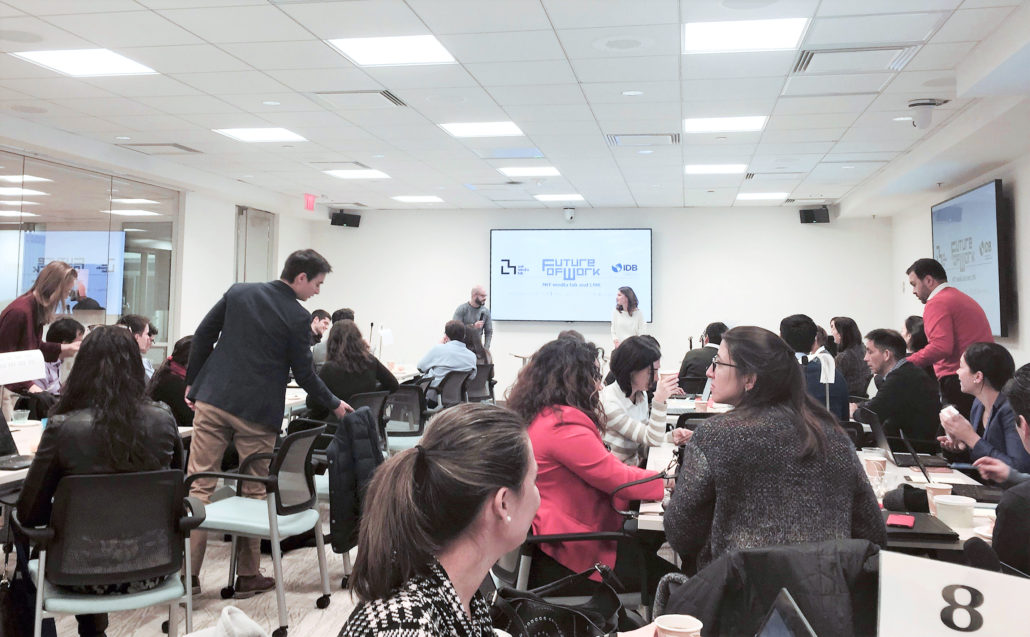We need to re-think the CV
Skimming over CVs (resumes, in the US) is an important part of HR managers’ job, but it can be a tedious task: at times, there is a need to go through thousands of documents in order to find the right candidate. Thanks to recent technological developments, today software can save HR the effort by recommending only the best matches between the contents of CVs and job ads. Although interpersonal aspects—for example, whether a candidate fits in with the company culture—still have to be considered by human judgement during interviews, a pre-selection process via software can make a substantial difference in effort. However, the software-based matching process could become even better if all CVs were to be of the same format; that is, if they contained equivalent information. That reality does by no means correspond to this ideal case becomes clear when looking at different countries’ various hiring processes.
Each country has its own preference
In the United States and in Canada, the standard and most accepted document in job search is the resume. A resume contains a short summary of the applicant’s skills, qualifications and education, which is usually adjusted for the respective position. Due to US privacy laws, personal information such as date of birth, marital status or postal address is often omitted [1].
In Europe, the CV is the most frequently used document in recruitment. Since CV is short for curriculum vitae (Latin: “course of life”) it is an in-depth overview of a person’s education, experience and qualifications [1]. However, the level of detail expected often differs among European countries. For example, whereas a German employer is expected to list personal facts such as family, nationality or number of kids, such specification of personal details is inappropriate in a UK CV [2].
East Asian countries such as China, Japan and South Korea focus a lot on CVs’ education details, as the dominant view in this region is that ‘higher education equals greater capabilities’. In comparison to the CV formats in the US and Europe, their corresponding ‘stock application forms’ look more like service application forms. With respect to the level of detail, Chinese employers expect a lot of personal information, but cover letters are usually not required [3].
The EU’s attempt to standardize CVs
The EU has put some effort into creating a standard application procedure for all job seekers. The European Commission has implemented Europass, a European skills passport that includes a CV, a language passport, a Europass mobility document as well as diploma and certificate supplements. By offering documents that are comprehensible for all employers in the EU this free service aims at facilitating the movement of talents across all member states.
However, as has been noted, the downside of the Europass template is that it makes candidates ‘faceless’. Imagine big companies regularly receiving thousands of CVs whose scanning only takes a couple of seconds. In order to stand out from the crowd and win a few more seconds of attention one would have to submit a unique CV template. In fact, users reported more disadvantages than benefits of using the Europass template, including the limited space for information about one’s work experience (to which the big logo taking up a considerable amount of space of the document stands in somewhat ironical contrast) [4].
Do we still need CVs today?
Nowadays people are questioning the necessity of traditional CVs. Many lament the inefficiency and time-consuming processes of writing and inspecting it. Even after going through dozens of CVs, HR managers might still be unable to find what they are looking for, as the submitted CVs invariably contain the same information. Sub-conscious bias is yet another problem to be tackled: some employers privilege candidates who attended the same university as themselves because they unconsciously prefer people who share their own qualities and background.
With the development of new technology, an increasing amount of big organizations stops asking for CVs. This is especially the case in campus hiring. Since 2016, Unilever has replaced approximately 150-200 campus-recruiting positions with a mix of game-like assessments. Correspondingly a manager at Unilever asks: “for the students, why do you need a resume? For us, it’s more about measuring potential than past” [5].
Despite such new ways of hiring, at JANZZ we think that CVs are still essential at the first stage of application. According to our years of experience, the situation that the majority of job websites and company recruitment websites ask candidates to upload a CV will remain, as the applicant tracking systems still require them in some form. Nevertheless, it makes sense to consider the raising issues tied to CVs in the digital age.
CVs in the digital age
In the past, when each CV received the personal attention of a reader who went through the motivation letter and letters of recommendation, all candidates were given an equal chance to be examined on a personal level—beyond mere numbers and facts. In today’s digital age, this first round of examination is executed by computers. But: is the candidate who speaks one more language really a better choice than someone who offers a lot of passion for the job instead? Shouldn’t the physically impaired person get an equal chance at being employed (instead of a lower match score)? In short, are computers able to read motivation and reference letters ‘with a human heart ’ so that every candidate is appreciated beyond facts and figures?
As far as our experience goes more than 50% of the CVs processed contain incorrect information. ‘CV padding’ or, the tendency to skew information to the candidate’s advantage, becomes more prevalent. In a conference JANZZ attended recently, different parties discussed the future of work and addressed the issue of block chain technology. Such methods are already being tested in a UK pilot project, where MSc graduates in Financial Risk Management make use of a service that allows their future employers to instantly verify their academic qualifications [6]. What remains unanswered, however, is the question of how senior job seekers’ skills, work experience and performance can be proven in such a system. Given that employers are responsible for creating a blockchain to record former employees’ information it is questionable whether they still care about updating such past information (especially in the case of small enterprises to which such activities mean high costs and expenditure of time).
At JANZZ.technology, we reflect on the above issues and try to integrate them into a product that offers a more considerate and, hence, better solution. We provide a unique semantic matching concept—JANZZ.jobs—that matches applicants and jobs anonymously. This method not only avoids sub-conscious bias, it also compares only the relevant criteria (skills, experience, education and specializations). JANZZ.jobs can be accessed globally, is already available in 9 languages and will be offered in 40 languages by 2019.
Write now to sales@janzz.technology
[1] ZipJob Team. 2018. Resume vs. CV – the Difference and Exactly Which to Use. URL: https://www.zipjob.com/blog/difference-between-cv-and-resume/[2018.12.13]
[2] Karin Bodewits. Ruth Winden and Robert Bowles. 2017. How to tailor your CV for different countries. URL: https://www.chemistryworld.com/careers/how-to-tailor-your-cv-for-different-countries/2500446.article[2018.12.13]
[3] intResume. n.d. Common resume and CV mistakes by Japanese, Koreans, and Chinese. URL: https://intresume.com/find-fix-common-resume-cv-mistakes-japanese-koreans-chinese/[2018.12.13]
[4] Andrew Stetsenko. 2017. You don’t need the Europass CV to get a job at European tech company. URL: https://relocateme.eu/blog/you-dont-need-the-europass-cv-to-get-a-job-at-european-tech-company/ [2018.12.13]
[5] Oliver Staley. 2018. The resume of the future will tell employers who you are, and not just what you’ve done. URL: https://qz.com/work/1232692/the-resume-of-the-future/ [2018.12.13]
[6] Avi Mizrahi. 2018. University College London Fights CV Fraud via Bitcoin Verification. URL: https://news.bitcoin.com/university-college-london-fights-cv-fraud-via-bitcoin-verification/ [2018.12.13]





